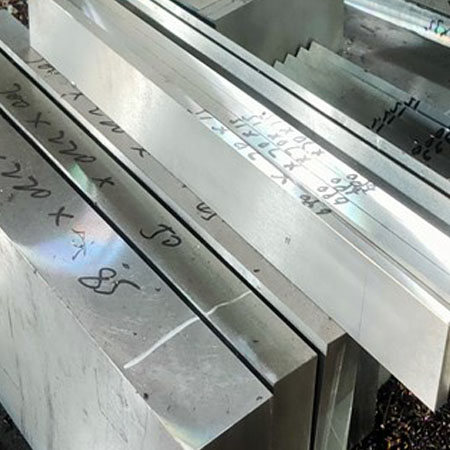Tel.: +86 714 3703 589 E-mail: [email protected]
Bearing steels can contain a wide range of compositions, each specifically designed according to the choice of the particular bearing manufacturer or the most economical process route. Together they require careful steelmaking practices to maintain the cleanliness of steel necessary for extended bearing life. As the demands of bearing applications increase, steel can be manufactured by quality practices such as melting under vacuum to further avoid the introduction of non-metallic inclusions into the steel.
Special, difficult-to-repair bearings can be made from high-alloy steels. Aerospace applications often require both high quality molten steels and complex alloy compositions.
The future of bearing steels will be defined by the search for an 'ideal' material that will improve surface hardness, fracture toughness, hardness retention at high temperatures and corrosion resistance.
AISI 52100 bearing steel is a high carbon, chromium containing low alloy made from hardened steel. This steel has a high hardness (up to HRC 67), high wear resistance (due to its high hardness) and rolling fatigue strength and is therefore particularly suitable for rolling bearings.

The most common material used to produce the load carrying components in precision ball bearings, roller bearings, and tapered roller bearings is 52100 chrome steel. These components are the bearings inner and outer rings, balls and rollers. The chemical composition of this steel has high carbon and about 1.5% chromium content. Using controlled processing and heat-treating methods the finished bearing components have high strength to resist cracking and a hard surface to resist subsurface rolling contact fatigue. The typical surface hardness for bearing components made from this material ranges from 60- 64 on the Rockwell hardness C scale (Rc).
The raw steel used to produce high precision miniature bearings is processed with additional melting steps. The result is a type of steel with very uniform fine grain material structure, the bearing contact surfaces can be super finished very smooth so the bearing is very quiet.
The most common heat treating method for chrome steel is to thru harden the steel in a controlled atmosphere furnace. Bearings manufactured from chrome steel can operate at continuous temperatures up to 120°C.
Where higher temperatures are encountered, it is possible to Heat Stabilize the bearing components. By varying the heat treating process, bearings can be produced so they are capable of operating at temperatures of 220°C, and higher. For these applications, the components must be subjected to a tempering treatment at a higher temperature corresponding to the service temperature. This elevated tempering treatment has a detrimental effect on the hardness of the material and the load carrying capacity of the bearing is reduced.
SAE 52100 is an excellent general purpose bearing steel. Due to its excellent hardness and wear resistance, it exhibits good fatigue life in rolling element bearings. However, the corrosion resistance of chrome steel is poor because of the low chromium content. The surfaces of the bearings must be protected with a coating of rust inhibitor or oil to stop oxidation.